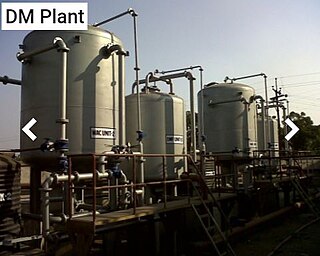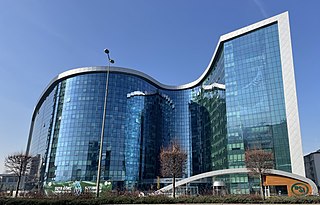Abortion in Ireland is regulated by the Health Act 2018. Abortion is permitted in Ireland during the first twelve weeks of pregnancy, and later in cases where the pregnant woman's life or health is at risk, or in the cases of a fatal foetal abnormality. Abortion services commenced on 1 January 2019, following its legalisation by the aforementioned Act, which became law on 20 December 2018. Previously, the 8th Constitutional Amendment had given the life of the unborn foetus the same value as that of its mother, but the 36th constitutional amendment, approved by referendum in May 2018, replaced this with a clause permitting the Oireachtas (parliament) to legislate for the termination of pregnancies.

Prior to the Supreme Court's decision in Obergefell v. Hodges (2015), U.S. state constitutional amendments banning same-sex unions of several different types passed, banning legal recognition of same-sex unions in U.S. state constitutions, referred to by proponents as "defense of marriage amendments" or "marriage protection amendments." These state amendments are different from the proposed Federal Marriage Amendment, which would ban same-sex marriage in every U.S. state, and Section 2 of the Defense of Marriage Act, more commonly known as DOMA, which allowed the states not to recognize same-sex marriages from other states. The amendments define marriage as a union between one man and one woman and prevent civil unions or same-sex marriages from being legalized, though some of the amendments bar only the latter. The Obergefell decision in June 2015 invalidated these state constitutional amendments insofar as they prevented same-sex couples from marrying, even though the actual text of these amendments remain written into the state constitutions.
Water privatization is short for private sector participations in the provision of water services and sanitation. Water privatization has a variable history in which its popularity and favorability has fluctuated in the market and politics. One of the common forms of privatization is Public-Private Partnerships (PPPs). PPPs allow for a mix between public and private ownership and/or management of water and sanitation sources and infrastructure. Privatization, as proponents argue, may not only increase efficiency and service quality but also increase fiscal benefits. There are different forms of regulation in place for current privatization systems.

The Constitution of the Kingdom of Thailand, Buddhist Era 2550 (2007) was the constitution of Thailand which was in effect from 2007 to 2014.
Uruguay is the only country in Latin America that has achieved quasi-universal coverage of access to safe drinking water supply and adequate sanitation. Water service quality is considered good, with practically all localities in Uruguay receiving disinfected water on a continuous basis. 70% of wastewater collected by the national utility was treated. Given these achievements, the government's priority is to improve the efficiency of services and to expand access to sewerage, where appropriate, in areas where on-site sanitation is used.
Water supply and sanitation (WSS) in the European Union (EU) is the responsibility of each member state, but in the 21st century union-wide policies have come into effect. Water resources are limited and supply and sanitation systems are under pressure from urbanisation and climate change. Indeed, the stakes are high as the European Environmental Agency found that one European out of ten already suffers a situation of water scarcity and the IEA measured the energy consumption of the water sector to be equivalent to 3,5% of the electricity consumption of the EU.
Access to at least basic water increased from 94% to 97% between 2000 and 2015; an increase in access to at least basic sanitation from 73% to 86% in the same period;
The water and sanitation sector in Peru has made important advances in the last two decades, including the increase of water coverage from 30% to 85% between 1980 and 2010. Sanitation coverage has also increased from 9% to 37% from 1985 to 2010 in rural areas. Advances have also been achieved concerning the disinfection of drinking water and in sewage treatment. Nevertheless, many challenges remain, such as:

The water supply and sanitation in India has improved drastically since the 1980s, but still faces ongoing challenges.
The Water supply and sanitation services in Portugal have seen important advances in access to services, technologies used and service quality over the past decades (1980s–1990s), partially achieved thanks to important funds from the European Union. Nevertheless, sanitation still remains relatively low in mountain rural areas and some people have their own sources of water controlled by municipalities.

The Ugandan water supply and sanitation sector made substantial progress in urban areas from the mid-1990s until at least 2006, with substantial increases in coverage as well as in operational and commercial performance. Sector reforms from 1998 to 2003 included the commercialization and modernization of the National Water and Sewerage Corporation (NWSC) operating in cities and larger towns, as well as decentralization and private sector participation in small towns.
Public water supply and sanitation in Scotland is characterised by universal access and generally good service quality. Water and sewerage services are provided by a single public company, Scottish Water. The economic water industry regulator is the Water Industry Commission for Scotland. It "promotes the interests of water and sewerage customers in Scotland by making sure that householders and businesses receive a high-quality service and value for money by setting prices, monitoring Scottish Water's performance and facilitating competition in the water industry". The environmental regulator is the Scottish Environment Protection Agency. Drinking water standards and wastewater discharge standards are determined by the EU.
Public water supply and sanitation in England and Wales has been characterised by universal access and generally good service quality. Salient features of the sector in the United Kingdom compared to other developed countries is the full privatisation of service provision and the pioneering of independent economic regulation in the sector in Europe. There has been a substantial increase in real tariffs between 1989 and 2005, whilst independent assessments place the cost of water provision in the UK as higher than most major countries in the EU. The government body responsible for water regulation, together with the water companies, have claimed improvements in service quality during the same period.

Water supply and sanitation in Morocco is provided by a wide array of utilities. They range from private companies in the largest city, Casablanca, the capital, Rabat, Tangier, and Tetouan, to public municipal utilities in 13 other cities, as well as a national electricity and water company (ONEE). The latter is in charge of bulk water supply to the aforementioned utilities, water distribution in about 500 small towns, as well as sewerage and wastewater treatment in 60 of these towns.

Ministry of Energy, Government regulates and manages the implementation of policies applicable to energy, electricity, water and wastewater services in Iran.
Water supply and sanitation in Greece is characterised by diversity. While Athens receives its water from a series of reservoirs, some of which are located 200 km away, some small islands are supplied with water from tankers. Greeks have suffered from repeated droughts, the most recent one occurring in 2007. The EU supported the construction of numerous wastewater treatment plants since the 1990s in order to achieve EU environmental standards. While the wastewater discharge of the biggest cities is now in compliance with these standards, some smaller towns still lag behind.

The Constitution of Kenya is the supreme law of the Republic of Kenya. There have been three significant versions of the constitution, with the most recent redraft being enabled in 2010. The 2010 edition replaced the 1963 independence constitution. The constitution was presented to the Attorney General of Kenya on 7 April 2010, officially published on 6 May 2010, and was subjected to a referendum on 4 August 2010. The new Constitution was approved by 67% of Kenyan voters. The constitution was promulgated on 27 August 2010.

Water supply and sanitation in Turkey is characterized by achievements and challenges. Over the past decades access to drinking water has become almost universal and access to adequate sanitation has also increased substantially. Autonomous utilities have been created in the 16 metropolitan cities of Turkey and cost recovery has been increased, thus providing the basis for the sustainability of service provision. Intermittent supply, which was common in many cities, has become less frequent. In 2004, 61% of the wastewater collected through sewers was being treated. In 2020 77% of water was used by agriculture, 10% by households and the rest by industry.
Water supply and sanitation in Malaysia is characterised by numerous achievements, as well as some challenges. Universal access to water supply at affordable tariffs is a substantial achievement. The government has also shown a commitment to make the sector more efficient, to create a sustainable funding mechanism and to improve the customer orientation of service providers through sector reforms enacted in 2006. The reform creates a modern institutional structure for the water sector, including an autonomous regulatory agency, an asset management company and commercialised state water companies that have to reach certain key performance indicators that will be monitored by the regulatory agency. The government has also stated its intention not to embark on new private sector contracts for water provision, after a bout of such contracts during the 1990s showed mixed results.
The Thirty-first Amendment of the Constitution (Children) Act 2012 amended the Constitution of Ireland by inserting clauses relating to children's rights and the right and duty of the state to take child protection measures. It was passed by both Houses of the Oireachtas (parliament) on 10 October 2012, and approved at a referendum on 10 November 2012, by 58% of voters on a turnout of 33.5%. Its enactment was delayed by a High Court case challenging the conduct of the referendum. The High Court's rejection of the challenge was confirmed by the Supreme Court on 24 April 2015. It was signed into law by the President on 28 April 2015.









